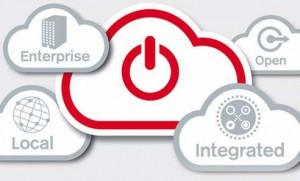Why Public Cloud Is The Future
By Kana Sabaratnam, former General Manager of Lava Labs

Public cloud computing is set to increase from USD 3 Billion in 2008 to 160 Billion in 2020 (Feb 2011 Frost & Sullivan). This growth forecast is driven by the confidence that public cloud data security will only keep getting more secure. Therefore, public clouds have to provide the highest possible security to maintain this rate of growth.
Furthermore, government and Enterprise users are demanding that public cloud security standards be much higher than in their own private cloud environments.
Currently the standard set far exceeds most private cloud security architectures. In retrospect, public cloud providers are increasing their security standards to meet this demand faster than what is available commercially as private clouds.
Immediate first steps on why cloud is an important differentiation:
- Public cloud data up-time and availability
The technology cloud providers use to maintain up-time of more than 99.8% is a consideration when comparing with internally hosted data centers.
- Public cloud collaboration tools
Collaboration among business users is taking over from social discussions. The benefit in business collaboration has got a dollar value that makes it profitable for businesses.
- Bring Your Own Device (BYOD)
Mobility is the key adoption driver. It is not a “nice to have”. It is required for user adoption and success of your implementation
The primary focus of public cloud providers are data security and up time so that all three key important differentiation of cloud are available as a service. Each public cloud provider has a home-grown scalable platform to meet their unique offerings. This is the only way the public cloud providers can ensure that their cloud computing service will be available 24/7.
The public cloud has a dedicated and scheduled development and deployment plan that ensures the security and up-time is maintained at all times. This value is not for sale and will not be available in any private cloud unless it is driven by a sustainable commercial model.
Related: The 60 Second Data Security Checklist

Virtual Data Centers
The fact that there is no single point of identification where the data resides, is already a security control that can deter attacks. Data situated in a defined location will attract attention and become a sitting duck. Data located in a virtual environment which has multiple instances, is less vulnerable to be broken into. Virtual locations can be brought down systematically and traffic redirected.
The primary focus of public cloud providers are data security and up time so that all three key important differentiation of cloud are available as a service.
Architecture-Driven Framework
Public cloud is driven by proprietary architecture. The benefit of public cloud such as multi-tenancy, scheduled redundancy and virtualization, is what makes public clouds more secure.
In the current public cloud platforms, there are many providers that bring all these benefits into a single platform, specifically the multi-tenancy is standard that implements data security.
Multi tenancy is an architectural design of the system, and it can not be altered just to target a single tenant. It is the framework of how information is stored. All information is hard coded with the org identifier in every level. The database processes transactions where the ID is the identifier of how information is partitioned. This partitioning is then done in the model level (database) and application level (business logic).
Furthermore, the architecture is closed. It is constantly built on to meet the ever increasing demands of public cloud users. It has a well-established development and deployment schedule that ensures security and up-time. This technology is not and will not be made available commercially.
Secure Public Cloud Data
CipherCloud for public cloud addresses data privacy, residency, security, and compliance concerns so that organizations can confidently deploy Salesforce, Force.com applications, Amazon Web Services and Google Gmail App.
In this example, CipherCloud solution understands Salesforce metadata and provides organizations with the ability to easily tag any standard and custom fields, files, and attachments as sensitive. Once configured, the CipherCloud solution secures this data and prevents it from being leaked to unauthorized users, while working seamlessly with
This revolutionary technology, based on function-preserving encryption and advanced tokenization, provides full protection and control, and allows customers to retain complete control over keys. The solution is transparent to the end user, and all native Salesforce functionalities, such as searching and sorting, are preserved.
Public Cloud is Defining Mobile Applications
Public cloud is defining the future of mobile applications. The cloud providers have a strangle hold on mobile applications and how it delivered to the user. The sale and distribution of mobile applications is controlled by public cloud providers.
The features that are included or embedded in the operating systems of mobile phones are set by the cloud providers. In order for private cloud providers to engage with users, they would need to create their own mobile app store to distribute and deliver the apps.
The adoption of newer app stores has been very unconvincing. Developers would use the more popular public cloud development platforms than private cloud platforms.
Furthermore, the mobile device itself will not install the apps unless it is installed from one of these stores. If you are not already in the game, the barrier of entry is very high.
Conclusion
Private clouds are derived from open systems that are available commercially. Therefore it is not proprietary technology. However, public clouds are home grown solutions that are derived from customer needs. Google is the third largest hardware manufacturer for internal consumption. This is the typical paradigm for cloud providers to have their proprietary software and hardware.
Private clouds will not exist if public clouds have not shared their expertise and knowledge. Private clouds will not be able to lead the cloud technology in terms of security and information access.
Lava is an authorised Salesforce Partner in Malaysia and has more than a decade of experience in cloud solutions which includes marketing automation, CRM implementation, change management, and consultation. We pride ourselves in not just being a CRM partner but in also understanding the needs of our customers and taking their business to the next level.


